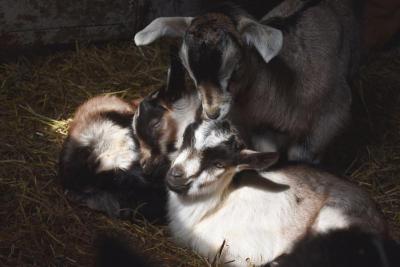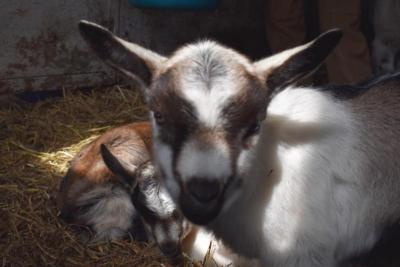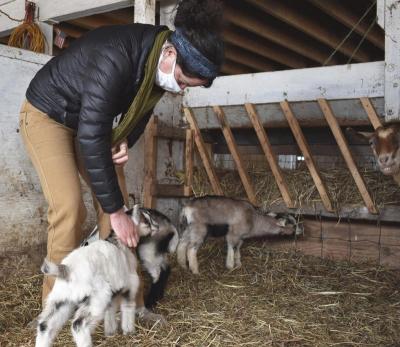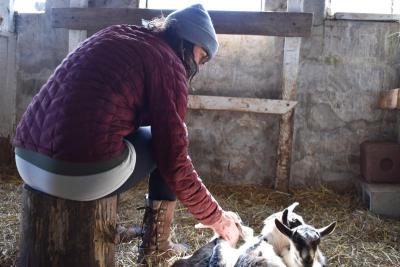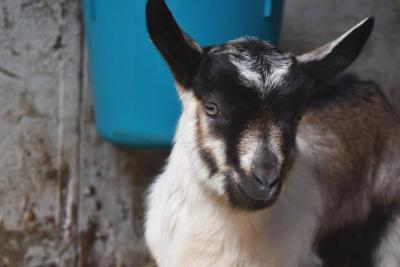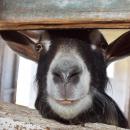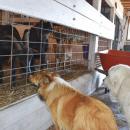Kidding around: Farm ushers in spring with baby goats
For some, a sign of spring is warm weather and flowers beginning to bloom. At Round the Bend Farm on Allens Neck Road, a sure sign of the season is goats — baby goats.
This year, the farm saw 16 new goats — only three of which were girls.
“It’s a lot of boys,” laughed Caretaker Hannah Wylie, who co-owns the goats with partner Tyler See. “But these guys are super friendly — so sweet.”
Goats are typically born around February through March, but there have been earlier kidding seasons in the past.
“We have kidded as early as January,” Wylie noted. “But we find it’s a little too chaotic with all the goats in the barn.”
To mitigate the chaos, she said the team tries to time the kidding so groups are weaned at different stages.
That way, all the young goats aren’t all cooped up in the barn together.
Older ones can instead spend more time in the pasture and eating foraged food.
Among the 2021 class of kids are three orphaned goats: Boulder, Pebbles, and Clover — all of whom are under the watch of three-year-old Peaches and her batch of triplets.
“She’s just one of the sweetest goats we have, so we knew we could put these guys in and it wouldn’t be an issue,” Wylie said.
She added that since Peaches only nurses her own triplets, the orphaned trio is instead bottle-fed until they start grazing around the farm.
But at this point, their main focus is just climbing and jumping all over their pen.
“They’re just figuring things out and seeing what they can do,” Wylie said. “They just want to climb on everything.”
Once fully grown, some of the goats will be used to make cheese and other dairy products, while the males will be used for goatscaping — landscaping, but with goats — in Dartmouth and Westport as part of Wylie and See’s “Goatbusters” business.
According to Wylie, the animals really like to eat unwelcome species like rosebush and poison ivy.
“They can really clean up your yard,” she said, adding that goats don’t eat too much grass since it can be too much for their stomachs. “It makes them kind of bloaty.”
Goatscaping is mostly carried out by castrated males and one-year-olds, the herd manager said. Some of the retired goats will be used for sausage.
Within the next few weeks, Wylie plans to get more of the kids outside and onto the rock outside of the barn — especially in time for the farm’s upcoming Open Farm Day on April 17.
“Hopefully we can get everyone out,” Wylie said. “They’re a good crew this year.”




